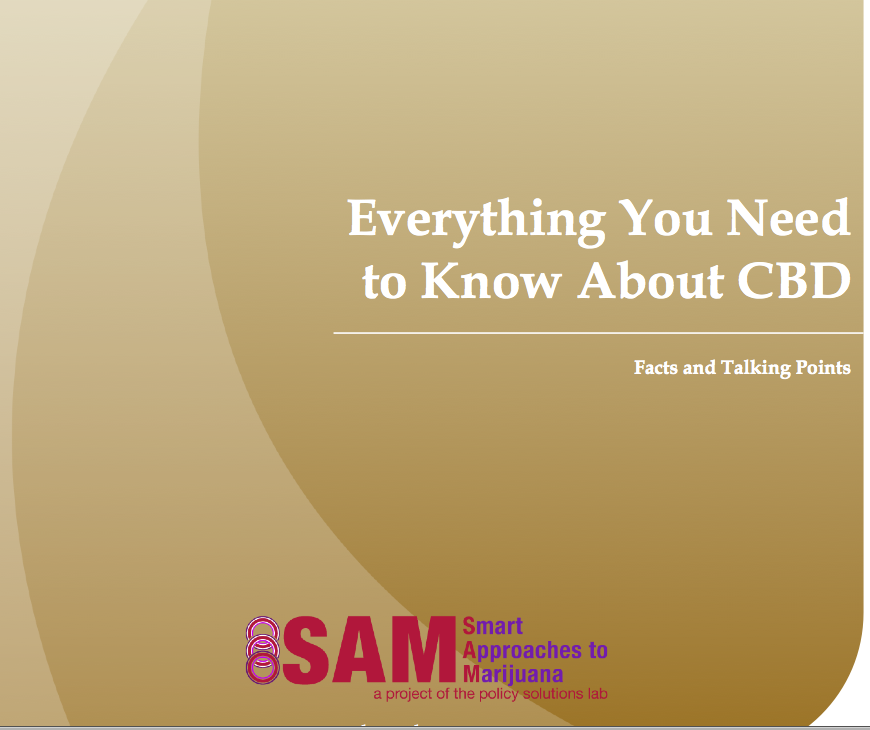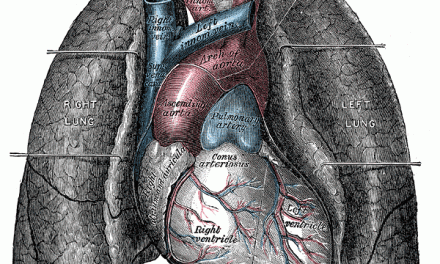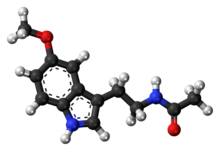January 17, 2014 A reader forwarded a “horrifying” new Project SAM brochure called “Everything You Need to Know about CBD.”
Let us not Indulge in CBD Opportunism
It’s tempting for those who are talking up the medical potential of cannabidiol to emphasize the absence of psychoactive effects in such a way as to imply that CBD is the “good” cannabinoid, as opposed to THC, the “bad” cannabinoid. That is a shortcut to acceptance that we consider opportunistic at best, unethical at worst.
Examples of “CBD Opportunism” can be found in a recent an article in the New Scientist by Lady Amanda Neidpath of the Beckley Foundation, a British charitable trust “that promotes the investigation of consciousness and its modulation,” and Paul Morrison, a researcher at the Institute of Psychiatry in London. Here’s an excerpt with our comments in boldface:
“It’s lack of balance that makes skunk cannabis do harm. The effects of cannabis on mental health have attracted much attention over the years. As far back as the 19th century it was recognised that cannabis could induce a transient psychosis which mimics the symptoms of schizophrenia. Despite this, until the last decade or so, most psychiatrists regarded cannabis as essentially benign.”
This is the reverse of the truth. Most psychiatrists in the UK and the US are Prozac pushers who have accepted Cannabis prohibition without a peep.
“The type of cannabis taken is an important factor. Street cannabis has indeed changed over the years. So-called ‘skunk’ does contain higher than normal concentrations of the main psychoactive compound, a molecule called delta-9-tetrahydrocannabinol (THC). What is less well known is that another constituent, cannabidiol (CBD), has been eliminated from skunk through selective breeding to increase the THC content.”
CBD has been bred down to trace levels not just in “Skunk” but in virtually all cannabis grown for psychoactivity.
“The elimination of CBD may play a key role in the development of psychosis. Laboratory studies have shown that pure, synthetic THC causes transient psychosis in 40 to 50 per cent of healthy people.”
At what doses? Pure THC lacks not just CBD but other compounds in the plant known to exert modulating effects.
“In stark contrast to THC, CBD appears to have an anti-psychotic effect, at least in animals. Studies in humans, though few in number, have produced similar findings.
“The elimination of cannabidiol from skunk may play a key role in the development of psychosis. In one human study, in Neuropsychopharmacology (DOI: 10.1038/npp.2009.184), Sagnik Bhattacharya and colleagues at the Institute of Psychiatry in London used functional MRI brain scanning to study the effects of THC and CBD on the brains of healthy volunteers. They found that THC and CBD acted in opposition; in brain regions where THC increased neural activity from a baseline, CBD decreased it, and vice-versa.
“In a further experiment, a group including one of us (Morrison), in collaboration with the Beckley Foundation, compared the effects of a mixture of synthetic THC and CBD (to mimic traditional cannabis) with THC on its own (to mimic skunk). The aim was to find out if CBD offered protection against the psychotic effects of THC. Healthy volunteers were given the molecules intravenously for two sessions.”
Two synthetic molecules don’t “mimic traditional cannabis,” and most people don’t shoot cannabinoids. What does this experiment have to do with the real world?
Niedpath and Morrison conclude: “The evidence supports the idea that nature knows best, and that the reintroduction of CBD would be beneficial. Two molecules are better than one.”
But the whole plant is better by far.






